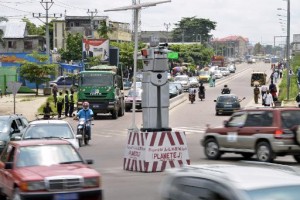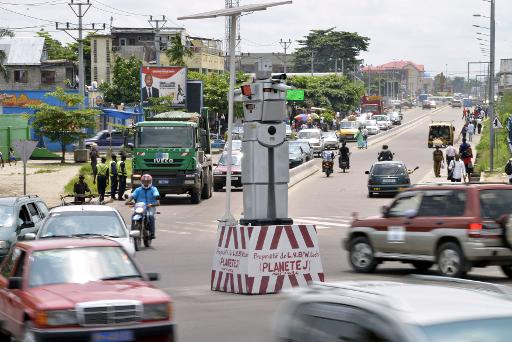SaferAfrica Project
 SaferAfrica Project is a three-year long project funded by the European Commission and leaded by Università la Sapienza di Roma aiming to create a “Communication Platform between Europe and Africa on Road Safety”.
SaferAfrica Project is a three-year long project funded by the European Commission and leaded by Università la Sapienza di Roma aiming to create a “Communication Platform between Europe and Africa on Road Safety”.
CITA is proud to contribute to the project: in fact it participates integrating the role of vehicle roadworthiness in a comprehensive road safety strategy approach.
Road safety in Africa represents a dramatic problem per se – 300,000 fatalities and over 5 million injured per year – with vast negative social and economic impacts.
The state of road infrastructure and vehicles, the insufficient deployment of modern traffic management systems, the inadequate legal and regulatory framework, the weak enforcement of safety measures, the lack of trained staff, the widespread improper behaviour of road users, the insufficient public awareness, are all factors that contribute to making Africa’s record on road safety the worst in the world.
This project will represent a high-level body with the main objective of providing recommendations to update the African Road Safety Action Plan and the African Road Safety Charter, as well as fostering the adoption of specific initiatives, properly funded.
The activity of the Platform will also focus on the reinforcement of the endogenous African capabilities through the dissemination of the EU know-how. Twinning Programs will be set up, besides the conduction of different training activities. Local contexts will be duly taken into account and studies on specific risk factors as well as transferability analysis of measures already tested elsewhere will be conducted. The project activities will be oriented to the “Safe System” approach and grouped in four pillars: Road Safety Knowledge and Data; Road Safety and Traffic management Capacity Review; Capacity Building and Training; Sharing of Good Practices.
The platform will work at two levels:
- A decision making level, run by a Management Board basing its actions on information provided and activities carried out by a technical level, with established Working Groups addressing specific topics. The Management Board will be constituted by prominent institutions like EC, the African Union Commission, Financial Institutions, and Regional Economic Communities (UN). The involvement of Development Banks will ensure the identification of available resources and the definition of suitable schemes of funding.
- The technical level, where CITA has its place, will involve government and research institutions, international and stakeholders organizations (e.g. NGOs), with a fair balance between African and EU partners, even for what concerns responsibilities (e.g. Euro-African work package co-leadership). The Dialogue Platform is intended to constitute a stable body, able to orient road safety policies beyond the project end.
The activities to be implemented will contribute to the improvement of road safety and traffic fluidity conditions in Africa, ultimately saving thousands of lives and lessening the human, social and economic burden of road accidents; to the reinforcement of endogenous African capabilities with a view to long term sustainable progress in the fight against road casualties and for a more efficient and sustainable transport system; to the dissemination of European know-how and the deployment of sound technical and governance solutions.


